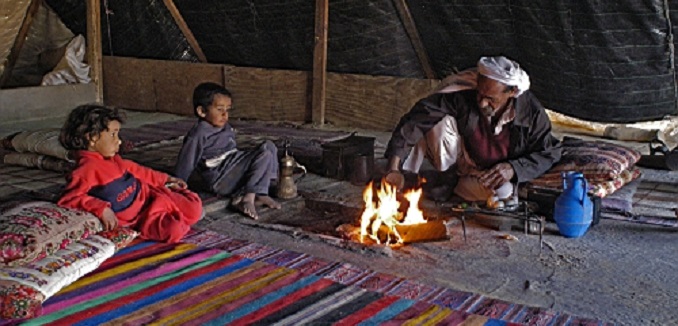Israeli Prime Minister Benjamin Netanyahu and Israeli President Shimon Peres this weekend declared that Israel would continue pursuing a multi-year plan to economically develop the country’s southern Negev region and politically integrate the Bedouin populations that live in the area, after activists late last week staged violent rallies opposing the so-called Prawer-Begin plan:
Israeli President Shimon Peres, in Mexico Sunday, said a land reform bill for Israeli Bedouins in the Negev must be pursued.
“Millions of shekels were invested in this plan and I’m sure the intentions are good, Backing down would mean a step back for the Bedouins as well,” Ynetnews.com quoted Peres saying as he wound up his trip in Mexico.
Israel’s Negev region constitutes almost half of the country’s pre-1967 territory. It is home to roughly 200,000 Bedouin, as many as 90,000 of whom live in conditions of chronic underdevelopment. Close to half of all Bedouin citizens in the Negev live in 40 encampments with little to no access to basic municipal services such as water and sanitation, and some villages are illegally located on lands reserved for public use, including near Israel’s main toxic waste depository. The unemployment rate for Israeli Bedouins is 70 percent, compared with a national average of 7 percent, and only 4 percent of Bedouins graduate from higher education institutions.
The Prawer-Begin plan would require Jerusalem to invest almost $2 billion in developing the Negev and moving some Bedouin communities to areas with education, health care, water, and electricity, where were they could legally live and in many cases claim ownership over their land. Organizations and activists critical of Israel, however, last week urged a so-called “day of rage” to oppose the plan, which they insisted was an instance of Israel dispossessing Palestinians.
Media outlets pointedly described the Israeli cities being constructed in the Negev as “Jewish settlements” and the Israeli Bedouins were called “Palestinian Bedouins.” Critics blasted such rhetoric as part of an effort to conflate the Bedouin cause with the Palestinian issue, noting that it was being done in the context of efforts to mainstream notions that Israel was targeting Palestinians. Analysts fear that the conflation will harm both the Bedouin cause and efforts to establish a Palestinian state.
Regarding the Bedouins, the violence has threatened passage of the Prawer-Begin bill, potentially leaving the Negev underdeveloped.
Regarding efforts to achieve a Palestinian state, the conflation is likely to deepen worries that the claims of Palestinians and their allies extend between the West Bank and Gaza Strip, and into territories that have been Israeli since the country’s birth and are internationally recognized as such.




